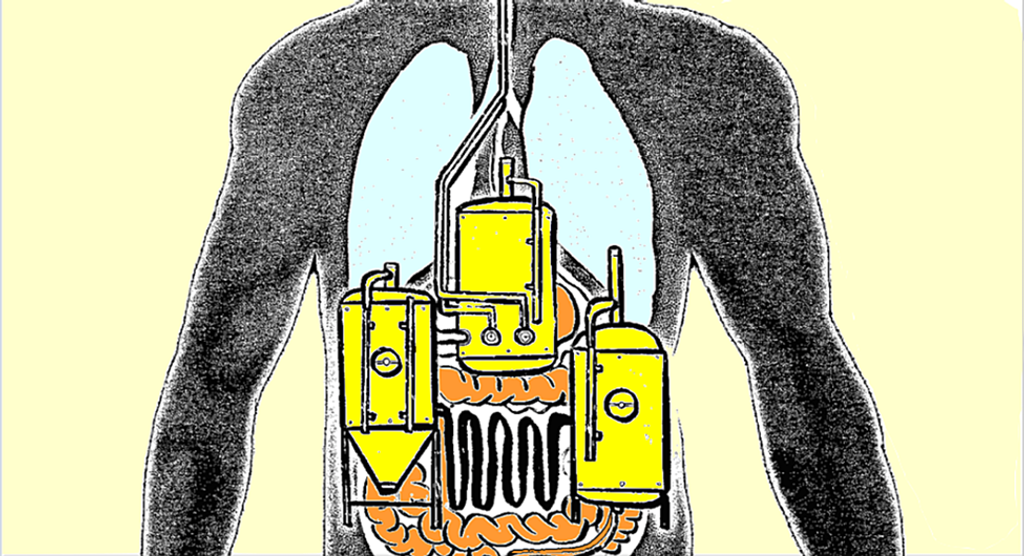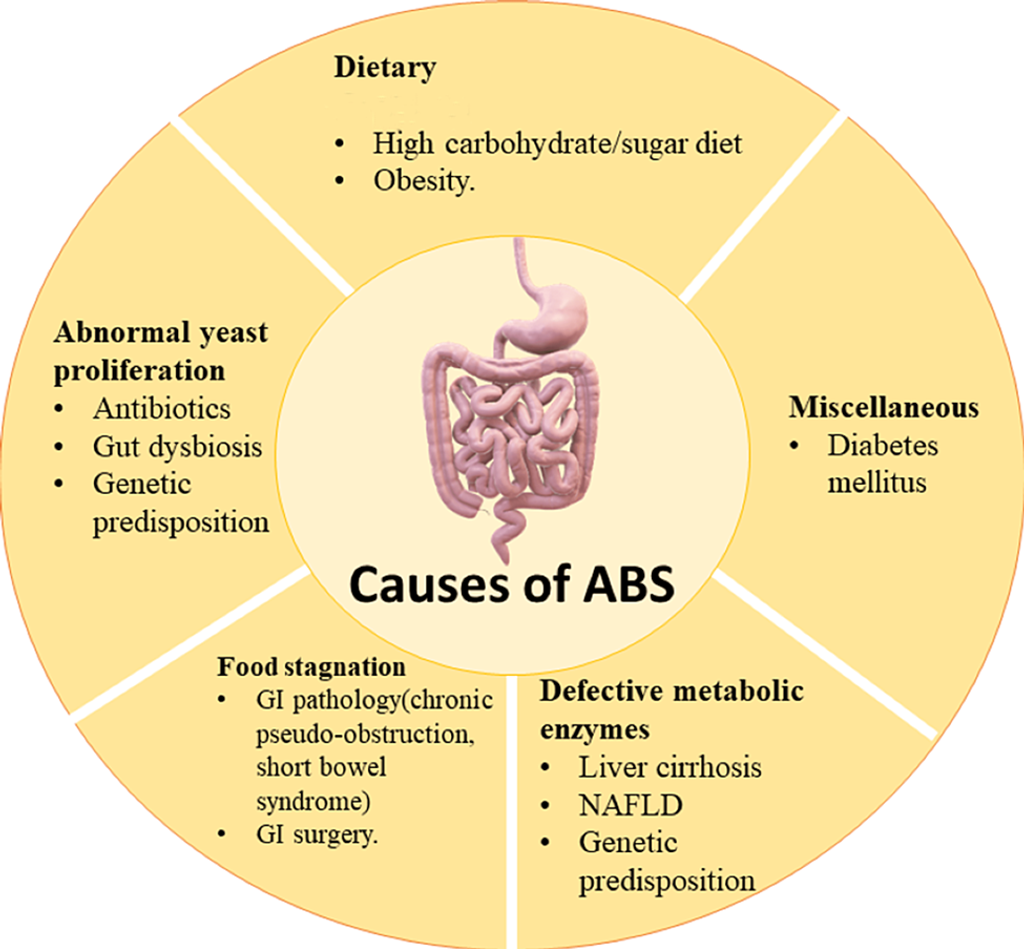It was an ordinary day in Toronto when a 50-year-old woman, disoriented and weak, passed out in her kitchen while preparing lunch for her children. Her breath reeked of alcohol, a fact that puzzled both her and her husband. She hadn’t consumed a drop of liquor. Over the next two years, she would visit her family doctor repeatedly and make seven trips to the emergency room, each time asserting her sobriety. Her claims were met with skepticism until an emergency room doctor considered a rare diagnosis: Auto-Brewery Syndrome (ABS).
The Mystery of High Alcohol Levels
Dr. Rahel Zewude, an infectious disease specialist at the University of Toronto, treated the woman and coauthored a report on her case. “She visited her family doctor again and again and went to the emergency room seven times over two years,” Zewude recounted. The woman’s blood alcohol levels fluctuated between 30 millimoles per liter and 62 millimoles per liter — alarmingly high compared to the normal level of below two millimoles per liter.
Barbara Cordell, president of the Auto-Brewery Syndrome Information and Research Association, explains the severity of these levels. “Alcohol levels of up to 62 millimoles per liter are extraordinarily high and would be considered life-threatening, even fatal,” she said. Despite these critical levels, the Toronto woman remained conscious and functional, a perplexing aspect of ABS that challenges medical understanding.
Auto-Brewery Syndrome: An Overview

Auto-brewery syndrome, also known as Gut fermentation syndrome, is a rare condition in which certain bacteria and fungi in the gastrointestinal tract ferment carbohydrates into ethanol. The first recorded case dates back to 1946 in Africa, involving a 5-year-old boy whose stomach ruptured, revealing an abdomen filled with frothy, alcohol-scented fluid.
Since 1974, only about 20 cases have been documented in English medical literature, though more reports have surfaced in Japan, where it’s termed “meitei-sho” or “Alcohol auto-intoxication syndrome.” ABS is caused by an overgrowth of specific fungi and bacteria, predominantly Saccharomyces and Candida species, in the small bowel. Unlike normal gut fermentation in the large bowel, this process produces significant amounts of alcohol.
A Battle Against Skepticism

For two years, the Toronto woman’s claims were met with doubt. Her religious beliefs prohibited alcohol consumption, and her husband corroborated her abstinence. She was evaluated by three different hospital psychiatrists, all of whom found no evidence of alcohol use disorder. It wasn’t until her seventh ER visit that a doctor suggested ABS and referred her to a specialist.
Dr. Fahad Malik, a gastroenterologist with extensive experience treating ABS, notes that many patients face disbelief and ridicule. “Most patients have been disregarded as ‘closet drinkers’ or with behavior conditions before diagnosis,” he said. This stigmatization underscores the need for increased awareness and understanding of ABS in the medical community.
Diagnosing and Treating ABS
Diagnosing ABS involves identifying the overgrowth of yeast or bacteria in the gut. A biopsy or colonoscopy is often necessary to pinpoint the specific pathogens. Treatment begins with targeted antifungal medications, as broad-spectrum treatments can exacerbate antimicrobial resistance — a contributing factor to the development of ABS.
Dr. Zewude emphasizes the importance of a tailored approach. “You need to start narrowly, and then if the patient becomes resistant to that fungicide, try others,” she said. Alongside medication, patients must adhere to a strict low-carb diet to limit the fuel available for fermentation. Probiotics can also aid in restoring a healthy gut microbiome.
Living with Auto-Brewery Syndrome
The Toronto woman’s journey with ABS highlights the challenges of managing the condition. Despite initial treatment success, she experienced a relapse and now maintains a very low-carb diet to prevent symptom recurrence. Support from family or close friends is crucial in managing ABS. “In this case, the woman has a very supportive husband, who called me immediately when he began to smell alcohol on her breath again,” Zewude noted.
Dr. Malik, who treats numerous ABS patients, echoes the sentiment that each case is unique. “Every patient’s experience is different,” he said, emphasizing the need for personalized management plans and ongoing communication between patients and their healthcare providers.
The Broader Implications
Though rare, auto-brewery syndrome reminds us of human health’s complexities and the importance of thorough, compassionate medical investigation. The Toronto woman’s case is not just a medical anomaly; it’s a story of perseverance and the necessity of patient advocacy in the face of disbelief.
For doctors, ABS presents a diagnostic challenge that requires an open mind and a willingness to consider unconventional explanations. Increased awareness and education about this condition can lead to earlier diagnosis, better management, and improved outcomes for patients who suffer from this bewildering syndrome.
As research continues, the medical community must strive to understand the underlying mechanisms of ABS and develop effective treatments. By doing so, doctors can offer hope and relief to those whose lives are disrupted by this enigmatic condition, ensuring their voices are heard and their experiences validated.
References
Her gut was producing alcohol. Doctors didn’t believe her [Internet]. Accessed on July 03, 2024. Available at:
https://edition.cnn.com/2024/06/03/health/auto-brewery-syndrome wellness/index.html#:~:text=Auto%2Dbrewery%20syndrome%20is%20an,in%20everyday%20food%20into%20ethanol.&text=In%20addition%20to%20killing%20off,extremely%20restricted%20low%2Dcarb%20diet.
About Docquity
If you need more confidence and insights to boost careers in healthcare, expanding the network to other healthcare professionals to practice peer-to-peer learning might be the answer. One way to do it is by joining a social platform for healthcare professionals, such as Docquity.
Docquity is an AI-based state-of-the-art private & secure continual learning network of verified doctors, bringing you real-time knowledge from thousands of doctors worldwide. Today, Docquity has over 400,000 doctors spread across six countries in Asia. Meet experts and trusted peers across Asia where you can safely discuss clinical cases, get up-to-date insights from webinars and research journals, and earn CME/CPD credits through certified courses from Docquity Academy. All with the ease of a mobile app available on Android & iOS platforms!







